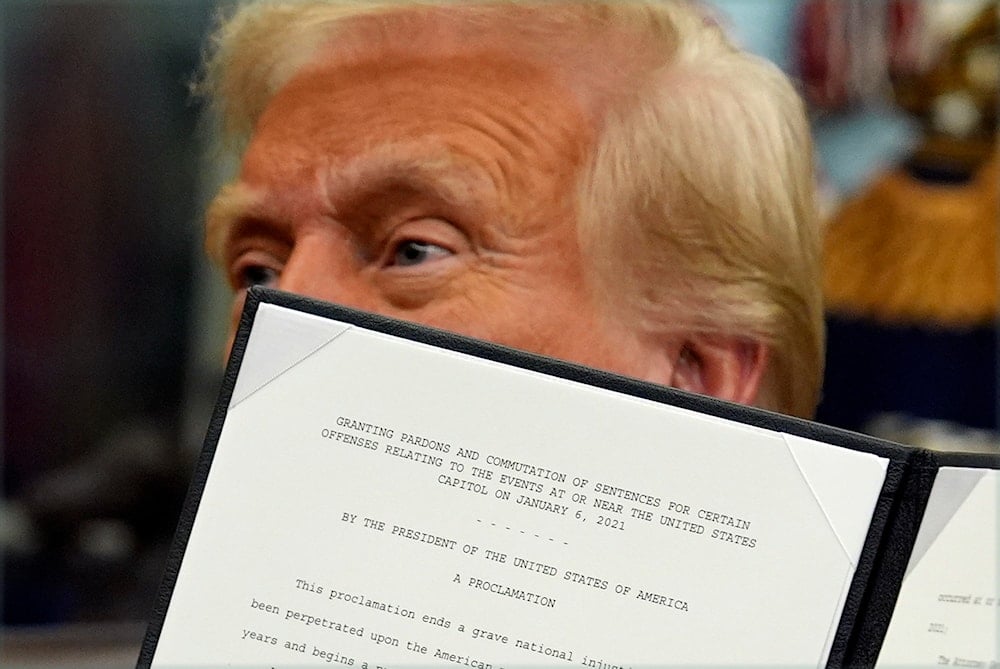Trump pardons 1,500 Jan. 6 defendants after taking office
After taking office, US President Trump signed pardons for 1,500 supporters who stormed the US Capitol four years ago.
-

President Donald Trump signs an executive order pardoning about 1,500 defendants charged in the Jan. 6 attack on the U.S. Capitol in the Oval Office of the White House, on January 20, 2025, in Washington. (AP)
Donald Trump swiftly pardoned approximately 1,500 supporters who stormed the US Capitol four years ago, as he moved quickly to assert his influence over the US government just hours after regaining the presidency on Monday.
After a day of ceremonies, Trump signed a series of executive actions focused on limiting immigration, reversing environmental regulations, and rolling back diversity initiatives related to race and gender.
While he did not immediately move to raise tariffs—a key campaign promise—he indicated the possibility of imposing 25% duties on Canada and Mexico starting February 1.
That sent the Mexican peso sliding 1% against the dollar, while the Canadian dollar tumbled to a five-year low of C$1.4515. The news also quickly erased gains in global stock markets and led to a strong rebound of the greenback across the board in volatile trading.
Trump's decision to pardon supporters who attacked the US Capitol on January 6, 2021, is expected to spark widespread outrage among law enforcement, lawmakers, and others whose lives were put at risk during this historic and deeply unsettling event in modern US history.
Approximately 140 police officers were assaulted during the attack, with many being sprayed with chemical irritants and others struck by pipes, poles, and other weapons. Four people lost their lives during the chaos, including a Trump supporter who was shot dead by law enforcement.
Trump ordered the early release of 14 leaders from the far-right Oath Keepers and Proud Boys militant groups who were serving lengthy prison sentences, though their convictions remained unchanged.
It is worth recalling that Trump vowed in March last year that he plans to free people jailed for taking part in the 2021 attack on the US Capitol as one of his first actions if reelected, calling them "hostages."
Trump signs key executive orders
Following his inauguration speech, Trump sat at a desk in front of his supporters to sign several orders, in an unprecedented move. According to news agencies, the president approved policies to withdraw the US from the Paris Climate Change Agreement and end "work from home" for Federal employees, among other decisions.
Trump then began to sign a series of documents when he arrived at the Oval Office. This included memorandums and policies on issues ranging from migration to the economy.
Later, Trump declared a "national emergency" at the US's southern border, claiming that the border is "overrun by cartels, criminal gangs, known terrorists, human traffickers, smugglers, unvetted military-age males from foreign adversaries, and illicit narcotics."
The executive order signed on the issue will allow for the allocation of personnel, including armed forces, and resources at the border, to assist the Federal government's work. Additional barriers and "unmanned aerial systems" will also be deployed in the area.

 3 Min Read
3 Min Read








